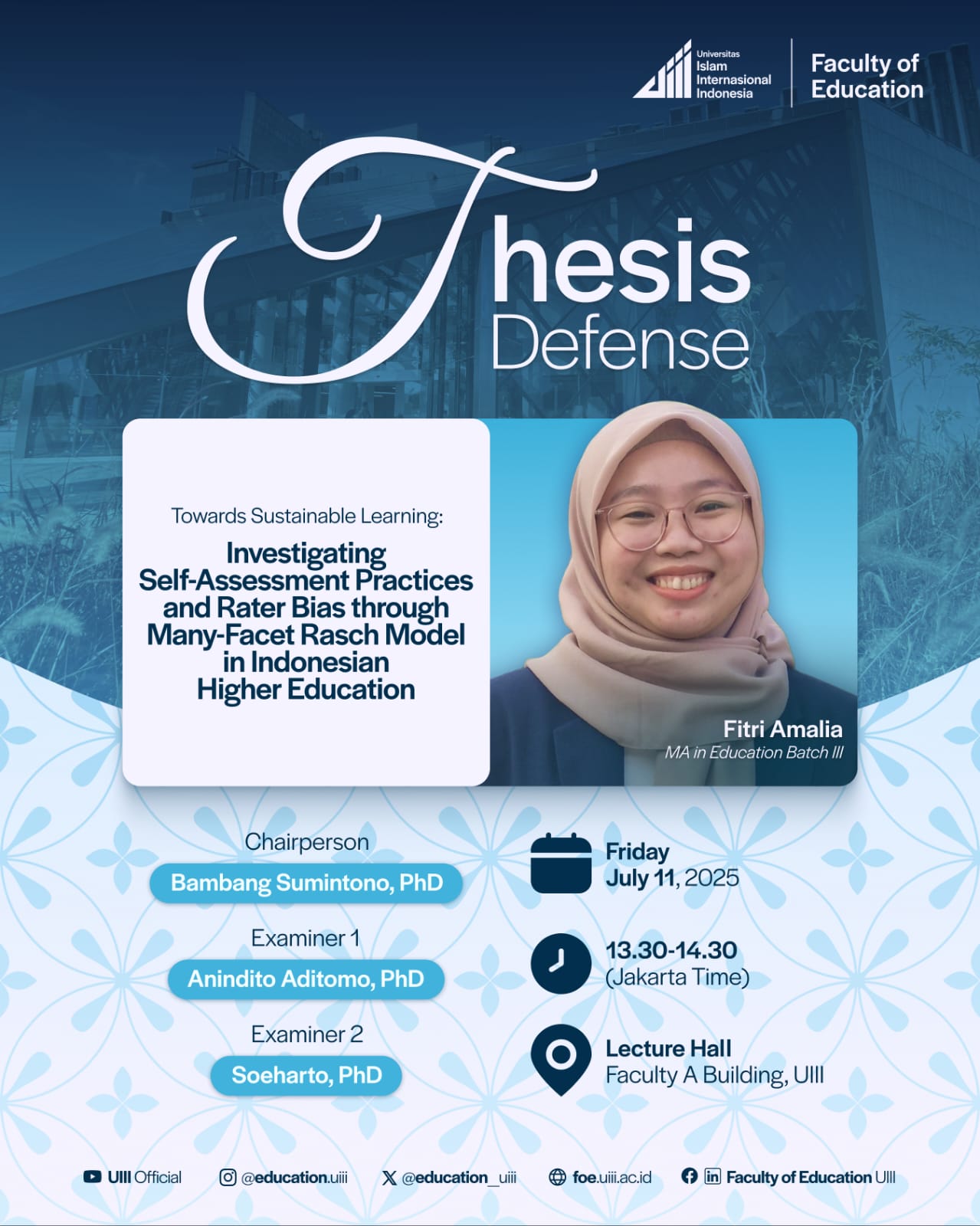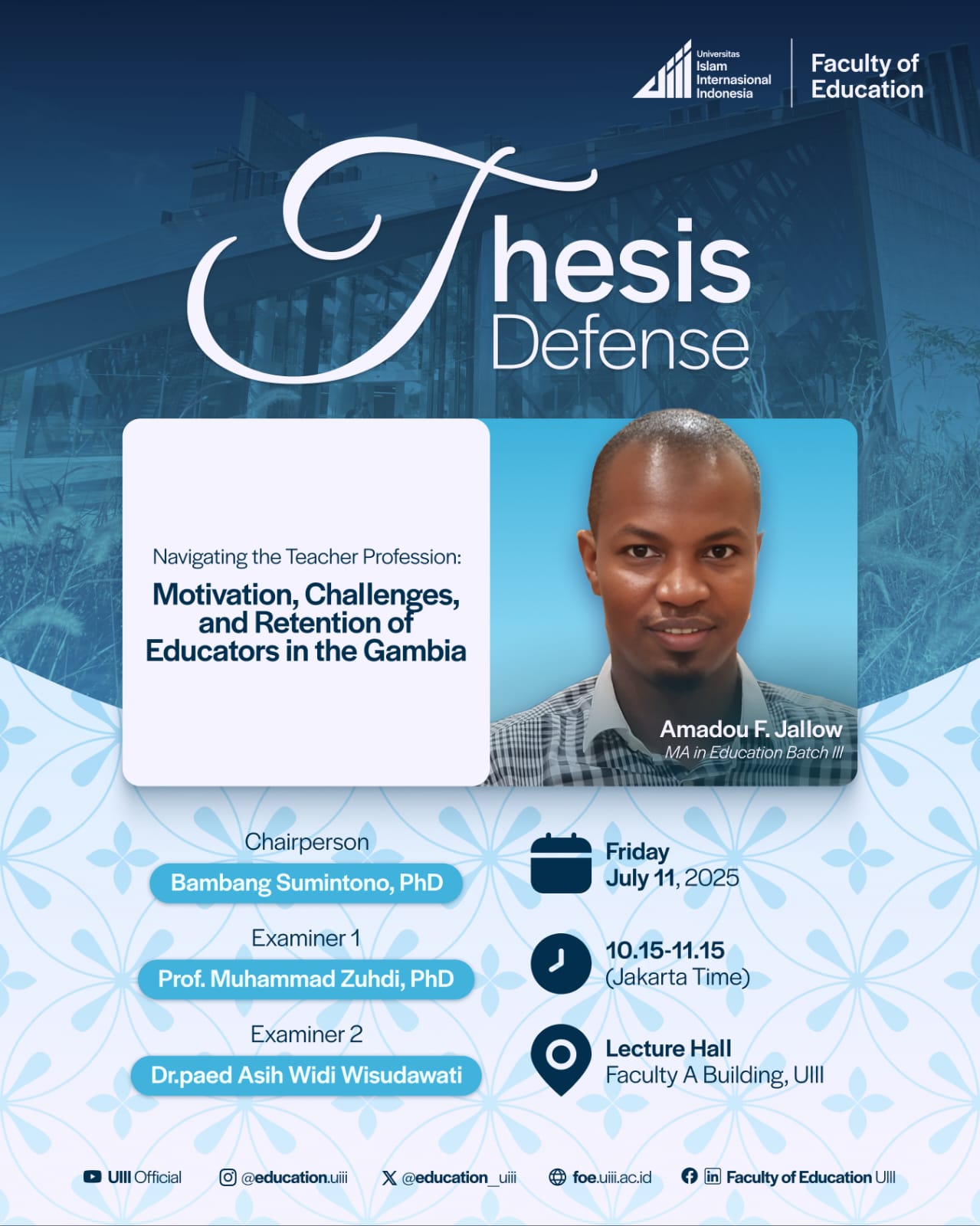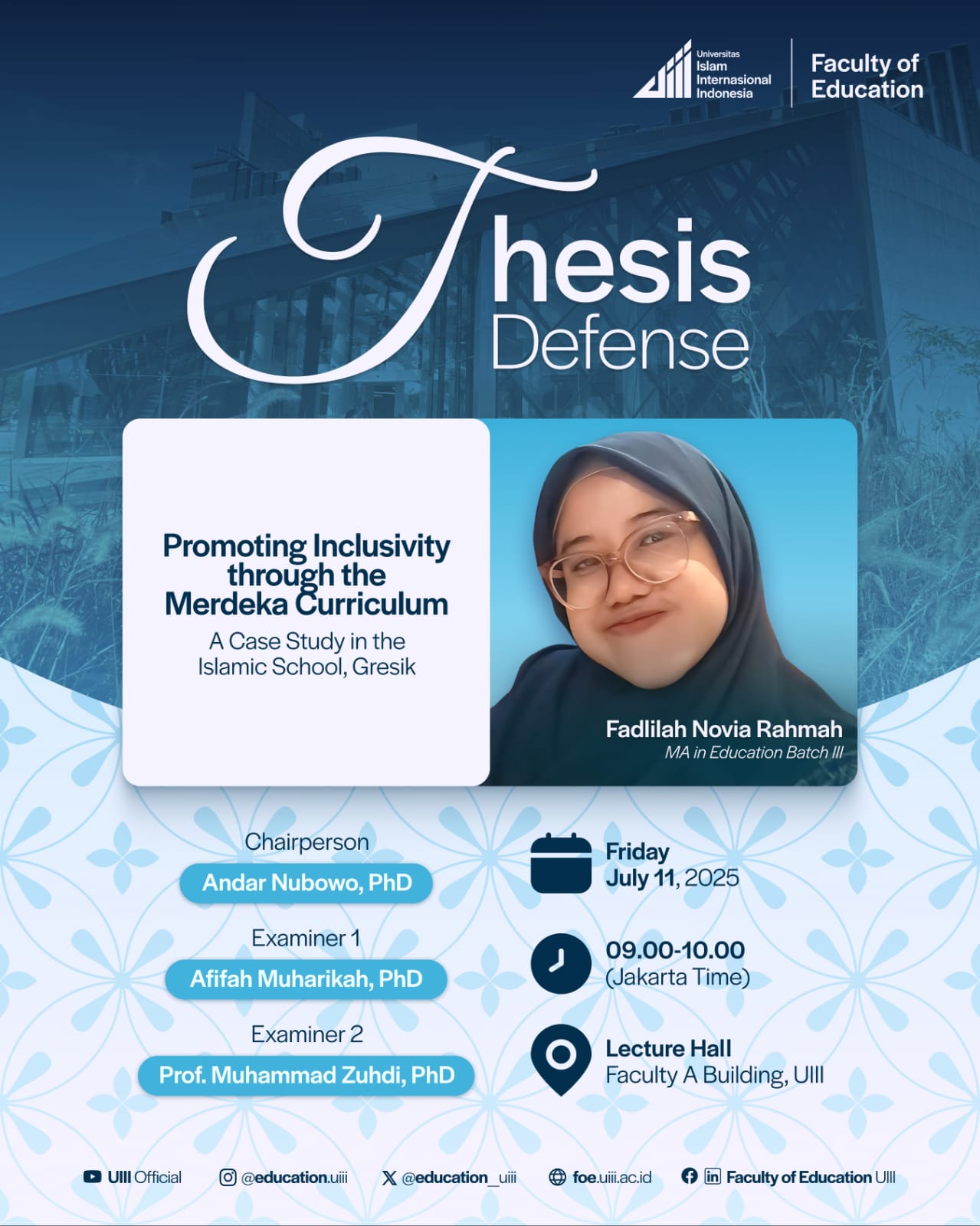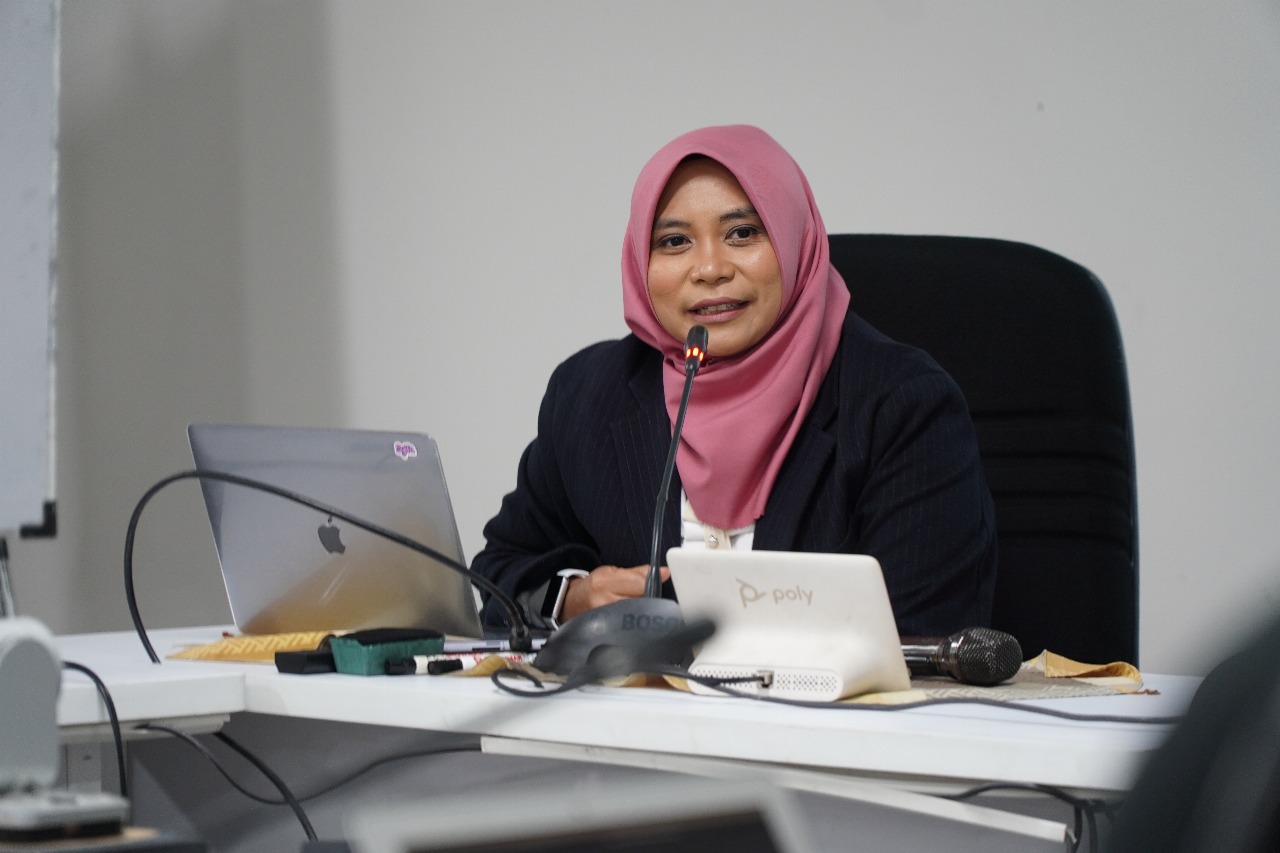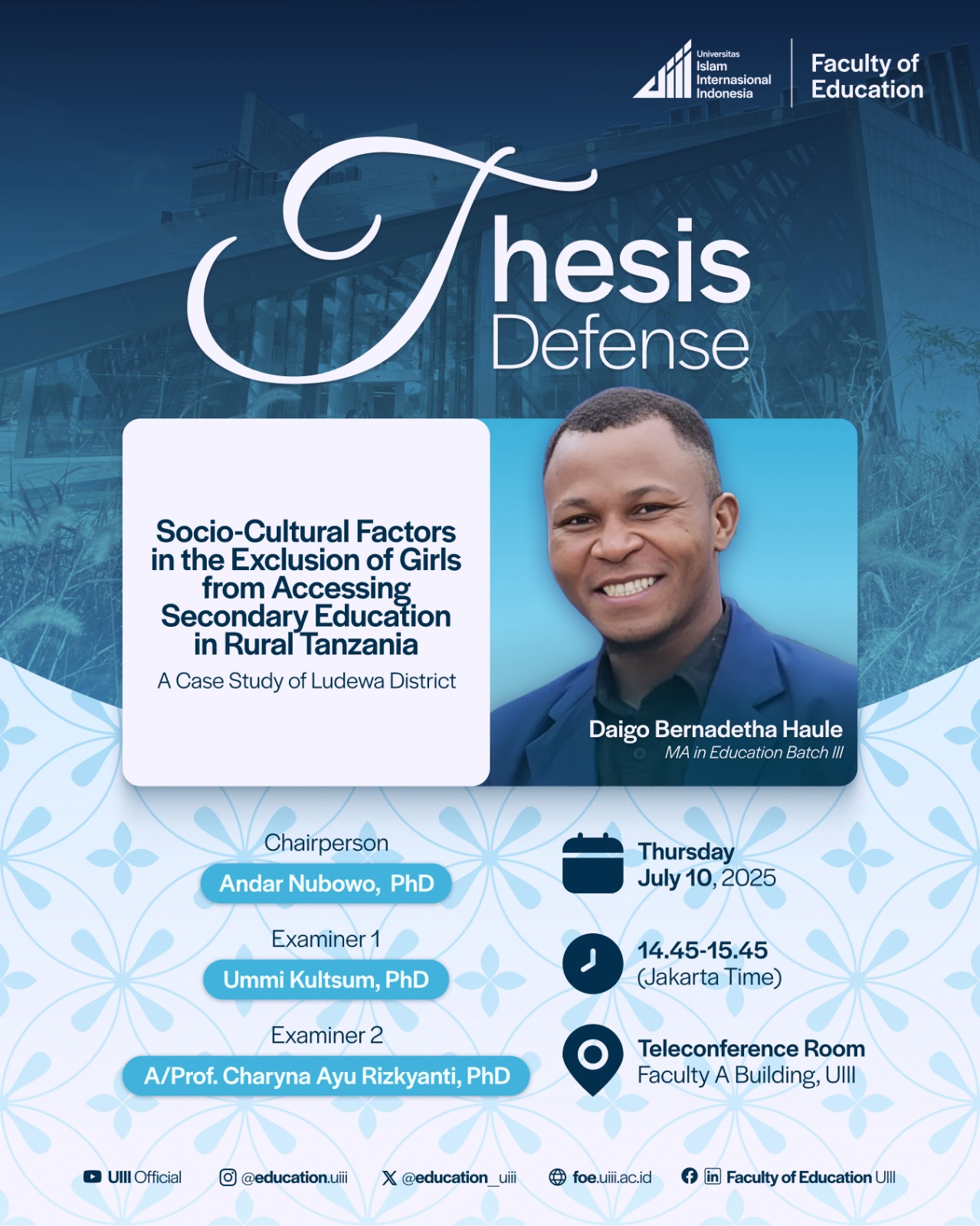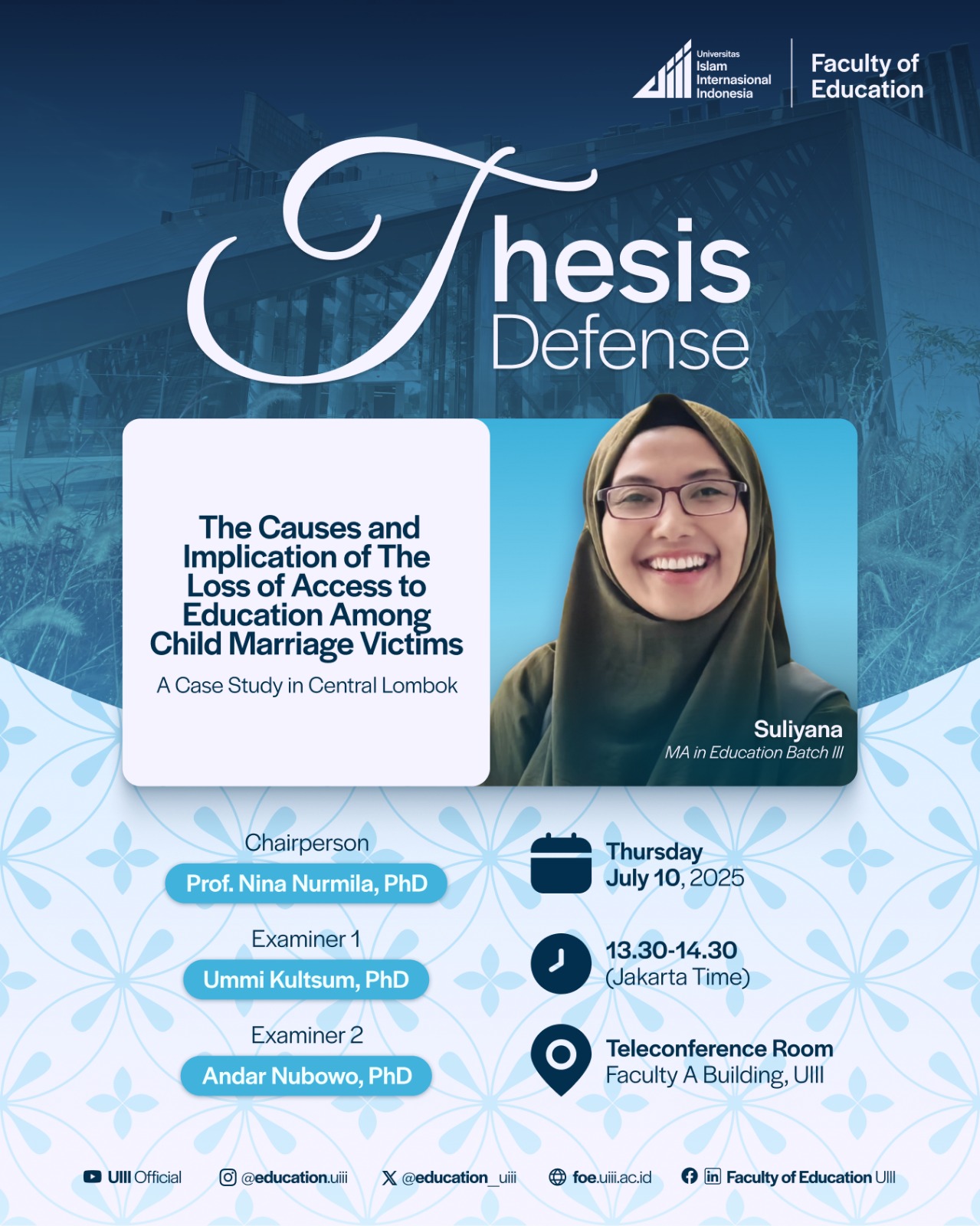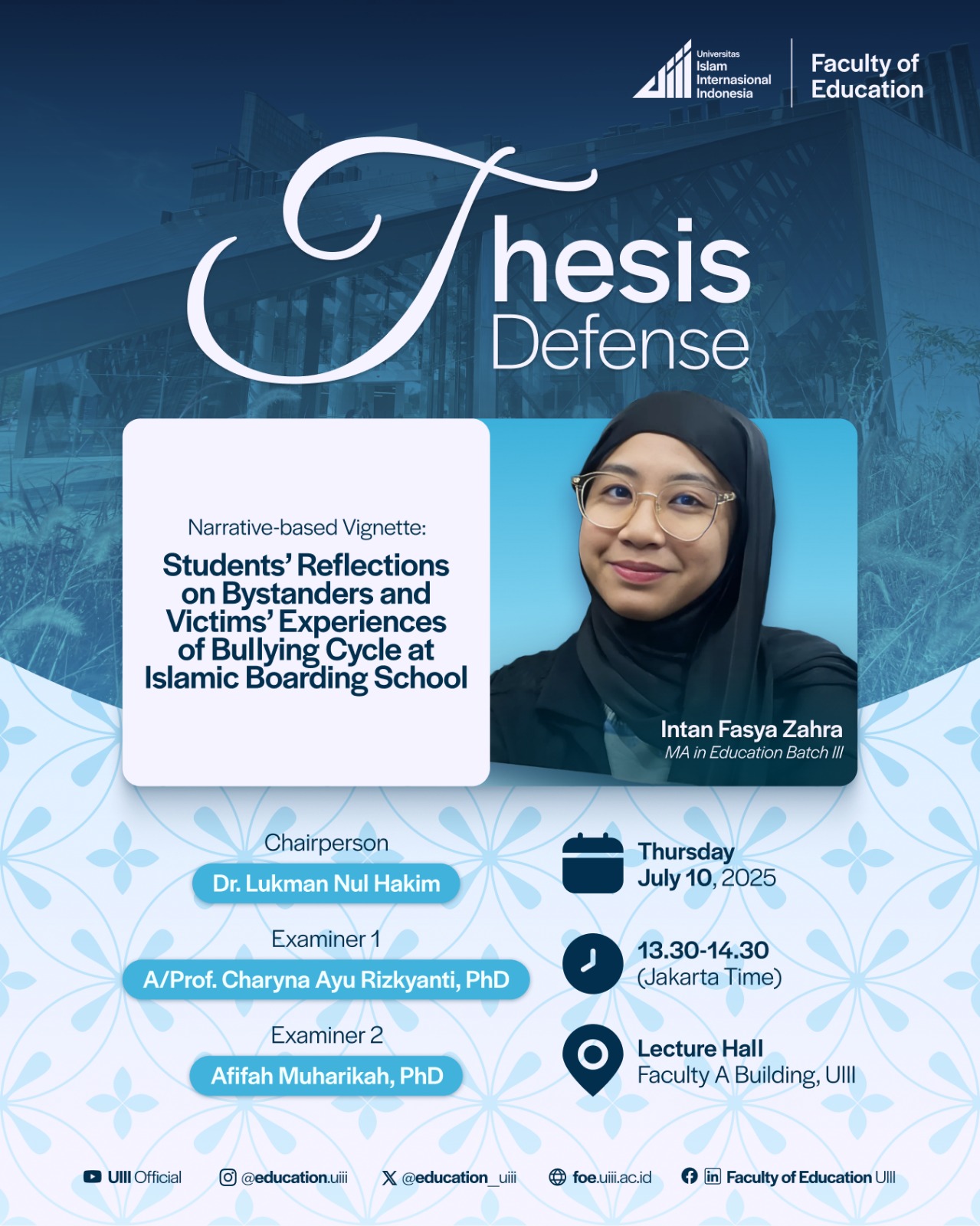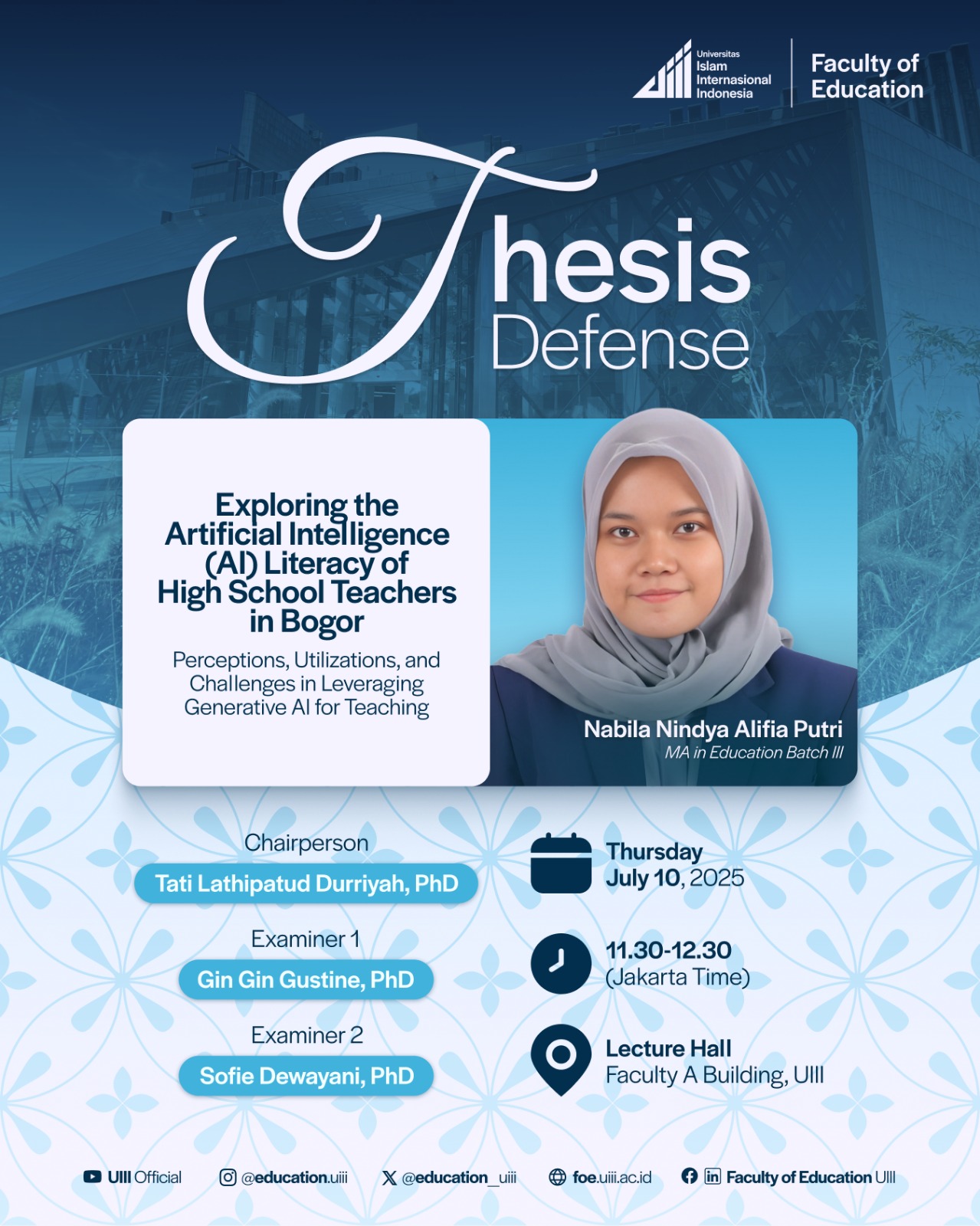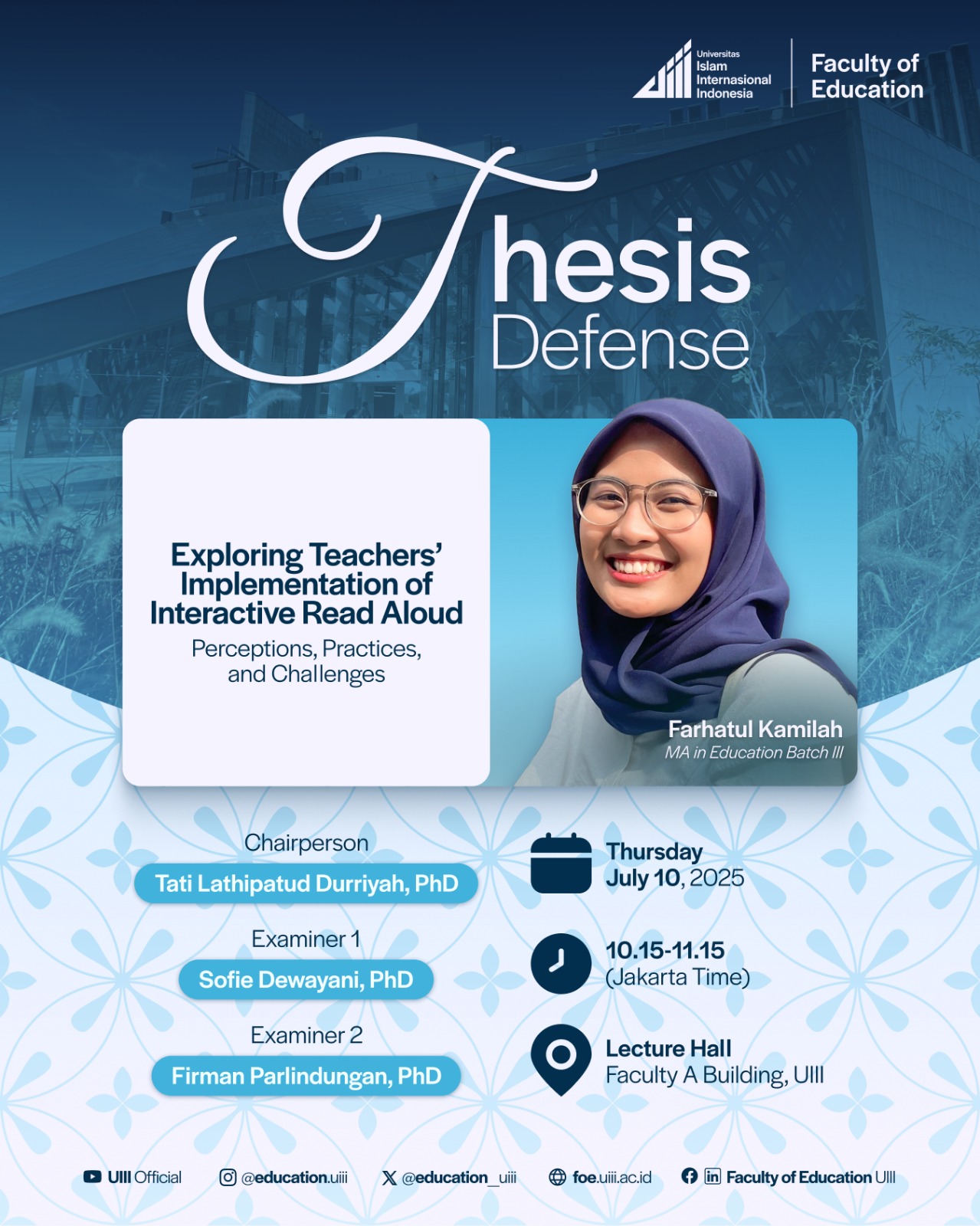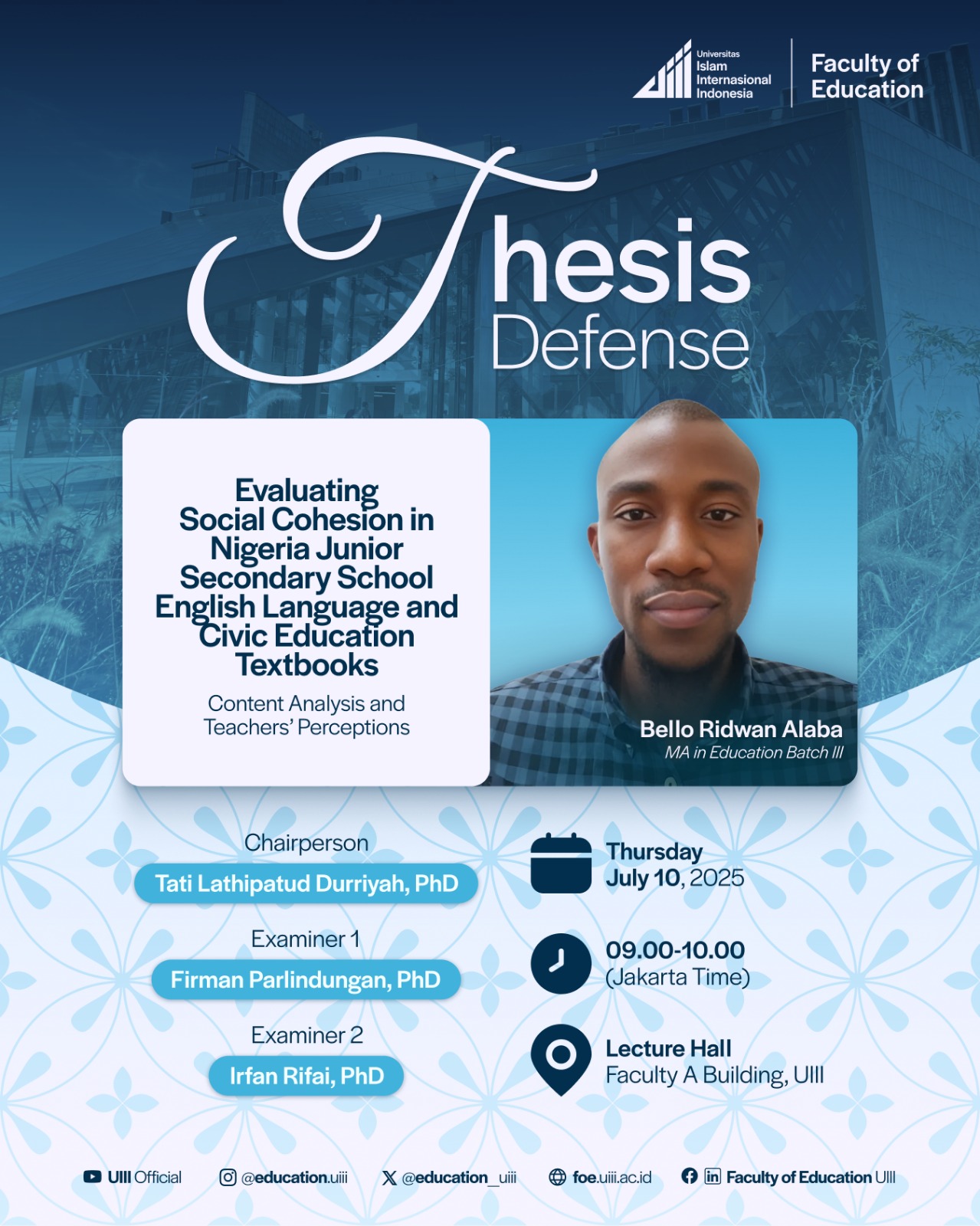Empathy and Well-being: Values That Inspired Me as a Student Mom
 Empathy and Well-being: Values That Inspired Me as a Student Mom
Empathy and Well-being: Values That Inspired Me as a Student Mom
By Syifa Mufiedatussalam
Pursuing my Ph.D. at the Faculty of Education, I began my journey as a “healing” of my daily routine as an 8 to 5 worker. At that time, I thought this was my opportunity to gather with new friends from various countries, expand my knowledge, and of course, earn another degree.
This journey, however, was not without its challenges.
I never thought that the journey would be like a rollercoaster. My life, which was far from academic activities, turned into a life full of papers, reading, and writing. Moreover, I experienced my first semester during the pregnancy, together with overwhelming academic activities. Then I gave birth and raised a baby, who is now entering toddlerhood. I experienced all of this alongside my commitments as a PhD student and a working mom.
Through the initiation of the Faculty of Education, under the Dean Prof. Nina Nurmila, Ph.D, the university established a daycare. At that time, it was exactly 3 weeks after I delivered my baby. I felt how the faculty, in their very empathetic way, tried to fully support us. The faculty gently encouraged me to focus on my study, reassuring me that my child was in good hands. However, it doesn't mean that my journey then became smooth without obstacles. I experienced baby blues syndrome because my child was hospitalized almost every two months at that time. Meanwhile, at the same time, I had to submit my course papers and presentations. Moreover, I am aware of the limitations of my academic writing skills where I have to learn from scratch to catch up with my Ph.D. fellows. Nevertheless, I am very fortunate that until now, daycare has become a very important support system for me.
Beyond facilities, what truly makes me survives was the community. Alhamdulillah, I was blessed with a new family here. The faculty members were always ready to share their knowledge generously. When I knocked on their doors with questions, I was welcomed with patience and thoughtful responses. Their sincerity made learning feel like a shared journey. At the beginning of my Ph.D., I was particularly concerned about how the dissertation phase would unfold. I was worried that, as we each progressed into our individual research projects, we would become isolated—detached from our peers and overwhelmed by the demands of our dissertations. However, as the journey progressed, I realized that I was not alone. My supervisors accompanied me patiently through every stage of the research process, providing not only academic guidance but also emotional encouragement. I was also surrounded by fellow Ph.D. students from Batch I—people who became more than peers. We shared struggles, victories, and quiet encouragements. We lifted each other up, laughed through stress, and held on to hope together. That sense of brotherhood and sisterhood was priceless.
More importantly, the faculty demonstrated a deep awareness of this concern by establishing a structured system of bi-monthly Dissertation Progress Meetings. These meetings served as a vital space to monitor progress, however small, and to maintain a sense of momentum. They were not merely administrative check-ins; they became opportunities to receive constructive feedback, strategic recommendations, and positive reinforcement to help us overcome research challenges. These meetings gradually turned into our “Ph.D. Batch I family gatherings”—a moment of truth where we shared stories, laughter, struggles, and strengthened the bonds of friendship. In those spaces, we reminded one another that we were never alone on this journey. What changed the most was me.
In the course on education and pluralistic society, A/Prof. Charyna Ayu Rizkyanti, Ph.D introduced us to empathy. I never expected that we would learn about empathy in the Faculty of Education. However, since that moment, I started to fall in love with empathy. I reflected that, it turns out, the value of empathy aligns with the religious moderation promoted by the university. Since then, the direction of my dissertation research shifted to empathy and well-being, which of course is supervised by her. Empathy and well-being—concepts taught not only as theories but modeled in practice—became values I deeply internalized. Not just as my research topics, but as ways of living. I witnessed how empathy creates space for understanding, healing, and personal transformation. I saw how these values allowed us to grow together—as individuals, as scholars, and as a community.
UIII taught me to see knowledge as a form of worship. Research became not just a task, but an amanah. I learned to align my intention with service—to my community, my faith, and the broader world. That shift turned every paper, every reading, every sleepless night into something meaningful. When I first joined UIII, I felt like an empty glass. Having been away from formal academic settings for several years, I entered the program with humility and awareness of my limitations. But through rich discussions, rigorous coursework, and the guidance of dedicated lecturers, I began to grow. And while I continue to discover how much I do not yet know; I now feel that my 'glass' has grown—perhaps into a bucket—ready to be filled even more. I am being filled not only with knowledge, but also with deeper questions, broader insights, and the confidence to contribute with purpose.
With this perspective, I have begun to give back. I provided private consultancy to a friend who was developing an Islamic elementary school (SDIT). I have also had the opportunity to support teachers in pesantren communities—sharing what I have learned while continuing to learn from them. These contributions are not mine alone; they are the fruit of the relationships, inspiration, and knowledge I gained during my time at UIII.
As I near the end of this journey, I carry a prayer in my heart: that all of us in this first cohort will graduate together, on time, with hearts full of gratitude and knowledge that blesses others. I hope we will continue to support each other, to share, and to grow beyond this academic journey.
To my fellow students and those who will come after us: come with humility. Empty your glass. Make room for what this place offers. You will be amazed at how much you grow—together with this institution, hand in hand with its vision.
And to UIII: may you always be a home for those seeking not only knowledge but also purpose. Thank you for supporting me in becoming who I am today. This journey shaped my mind and touched my soul. I will always carry it in my heart with gratitude and humility.

